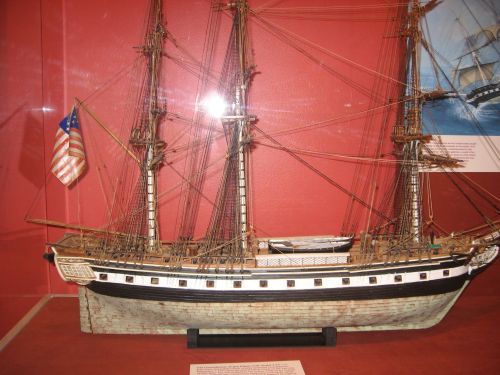Today I’m going to post something a little bit different, just because I can.
One of my favorite features on DVDs of hit movies is to watch the deleted scenes and debate with my husband whether the director made the right decision. Almost always, we agree.
Well, today, I’m going to post a scene from The Ambitious Madame Bonaparte that was deleted from the final version. It’s based on a real incident in Betsy and Jerome’s life, but it distracted too much from the big picture of what was happening at that moment. Its purpose was to show Betsy’s courage, but that’s demonstrated far more effectively later through more dramatic events (such as a shipwreck). The main point of the chapter in which this appeared was something quite different, and this scene didn’t contribute to that, so I cut it. It was not an easy decision because I liked the scene, but writers have to make these choices sometimes. Now that I have a blog, I can get some use out of the scene after all.
First let me provide a little background. They’ve been married only a month. It’s winter, 1804. Jerome decides they should travel to Washington, D.C., to visit some of Betsy’s relatives, dine with President Jefferson, and generally have a good time. (Jerome was big on having a good time.) Note that when Jerome uses the name Elisa, he means Betsy. It was his pet name for her.
The forty-five-mile trip from Baltimore to Washington was an all-day journey through much undeveloped country. Because it was winter, darkness fell long before they reached the city. As they approached the outskirts of the capital, Betsy dozed off with her head against Jerome’s shoulder. Suddenly, the carriage jolted over a bump and, as Betsy jerked awake, she heard a man’s cry outside. Jerome pulled up the curtain on the nearest window and called to the coachman, “What is wrong?”
No answer came, so Jerome put his head out the window and then quickly pulled it in again. “Mon dieu, we have no driver. I must leap out and try to stop the horses.”
“No, you might be hurt!” Betsy grasped his arm.
“Elisa, we have no choice. If the horses are not stopped, the carriage could overturn.”
Jerome shed his cape to avoid the risk of its being caught in the wheels and then opened the door and leaped from the vehicle. Moving to the opening, Betsy saw him spring up and run after the carriage, which was starting to slow down. Putting on a burst of speed, Jerome passed the carriage and came alongside the team.
Holding the doorframe, Betsy leaned out enough to see him reach for the bridle of one of the lead horses. To her horror, Jerome slipped on the snowy road but managed to throw himself away from the pounding hooves as he fell. As the carriage drove by his prostrate figure, Betsy heard him call her name.
The carriage was about to pass a large snowdrift beside the road. On impulse, Betsy sprang through the door, landing on her hands and knees in the snow.
For an instant, she could not breathe, and Betsy feared that she had injured herself. Then, pushing herself over onto her back, she inhaled with a great gasp. As nearly as she could tell, her bones were unbroken and she began to laugh with giddy relief.
A moment later, Jerome ran up, speaking so rapidly in French that Betsy could not understand him. He knelt and took her in his arms, and she saw by the light of the moon that he was crying. “My God, I thought I had lost you.”
The coachman ran past them, shouting at the horses, which were a long way down the road but heading toward a lighted building.
“That fool of a driver must have fallen asleep. I will beat him for his negligence.”
“No, darling.” Betsy took off her glove and laid a hand on his cheek. “We are both safe. Providence looked after us, and that is all that matters.”
“When I consider that you might have been killed, I feel wild with rage.”
“Think of it as an adventure. I am quite exhilarated,” she said and laughed again.
Jerome shook his head. “My God, you are a remarkable woman.”












